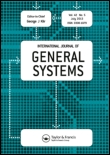eric.ed.gov har udgivet: This Child Development Associate (CDA) training module is intended to teach CDA interns how to provide classroom experiences that promote basic mathematics skills in preschool children. Knowledge of relationships of objects in space, grouping of objects, teaching of number names and counting, and the use of math games are discussed. The trainee is encouraged to learn how to plan and develop lessons, games, activities and environmental conditions to teach about objects and their location in space. Both teacher and trainee materials are provided in the module. Teacher materials consist of directions for pre-testing and field supervision, a resource person activity list and directions for each student activity. Trainee materials include pre- and post-tests, an activity record, a glossary, directions and 17 lessons. (Author/RH) Link til kilde
Like this:
Like Loading...
eric.ed.gov har udgivet: An attempt to meet the need for resource materials available for Adult Basic Education (ABE) personnel who work with Spanish-speaking adults is presented. The information presented was acquired by writing to commercial publishers throughout the country. Evaluations included were completed by identifying the usefulness of the curricular offerings for Spanish-speaking adults. Portions of the evaluations are designed for children and junior and senior high school students; some of these have proven useful to adults. Evaluative criteria used when the materials were assessed include: Title, Author, Publisher, Objectives, Criterion Measures, Instructional Components, Learner Prerequisite, Teacher Requirements, Reliability Effect, Cost and Time. (Author/CK) Link til kilde
Like this:
Like Loading...
eric.ed.gov har udgivet: The Eisenhower Pre-Service Teacher Education Project was developed by the University of Central Florida, the five community colleges in Region III of the Higher Education Consortium, and the private college and universities in the same region to design curriculum changes to improve the preparation of elementary and secondary math and science teachers. Faculty members at participating institutions developed projects designed to both improve the math and science content knowledge of pre-service teachers, as well as teaching methods in undergraduate math and science courses. Funded projects included the following: (1) the introduction of “hands-on” activities into college Astronomy and Oceanography courses; (2) the identification of potential K-12 pre-service teachers during their freshman and sophomore years to improve their math and science backgrounds; (3) the development of a field… Continue Reading →
Like this:
Like Loading...
eric.ed.gov har udgivet: This is the fourth biennial report to Congress on the implementation of the “Elementary and Secondary Education Act’s” Title III State Formula Grant Program (also known as the English Language Acquisition State Grants Program). This report provides information reported by states to the U.S. Department of Education regarding services provided for children served under Title III to ensure that all limited English proficient (LEP) students attain English proficiency and are achieving in reading or language arts and in mathematics at the same high level set by the states for all students. Under the State Formula Grant Program, states also are accountable for the education of immigrant children and youth. In this report, the U.S. Department of Education presents data reported by the 50 states, the District of… Continue Reading →
Like this:
Like Loading...
eric.ed.gov har udgivet: California State University, Bakersfield (CSUB) received funding from National Science Foundation’s (NSF) Robert Noyce Teacher Scholarship Program to recruit Noyce Scholars from upper-division science, technology, engineering, and mathematics (STEM) majors, graduate students, and professionals switched to STEM teaching from other fields (NSF DUE-0934944). The program purpose is to increase the number of highly qualified science and math teachers at high-needs schools. This report is based on multilevel quantitative and qualitative data from university records, program minutes, as well as individual-level information gatherings from Noyce Scholars and Advisors. In addition, the report design is grounded on a thorough review of updated literature to ensure its conformation to best professional practices. The results show that the program quality is supported involvement of a group of award-winning faculty in STEM… Continue Reading →
Like this:
Like Loading...

tandfonline.com har udgivet en rapport under søgningen “Teacher Education Mathematics”: Abstract Bertalanffy’s so-called “general system theory” (GST) and cybernetics were and are often confused: this calls for clarification. In this article, Bertalanffy’s conceptions and ideas are compared with those developed in cybernetics in order to investigate the differences and convergences. Bertalanffy was concerned with first order cybernetics. Nonetheless, his perspectivist epistemology is also relevant with regard to developments in second order cybernetics, and the latter is therefore also considered to some extent. W. Ross Ashby’s important role as mediator between GST and cybernetics is analysed. The respective basic epistemological approaches, scientific approaches and inherent world views are discussed. We underline the complementarity of cybernetic and “organismic” trends in systems research within the unitary hermeneutical framework of “general systemology”. Link til… Continue Reading →
Like this:
Like Loading...
